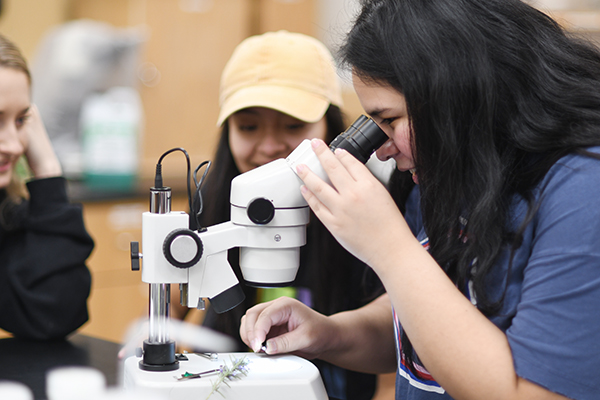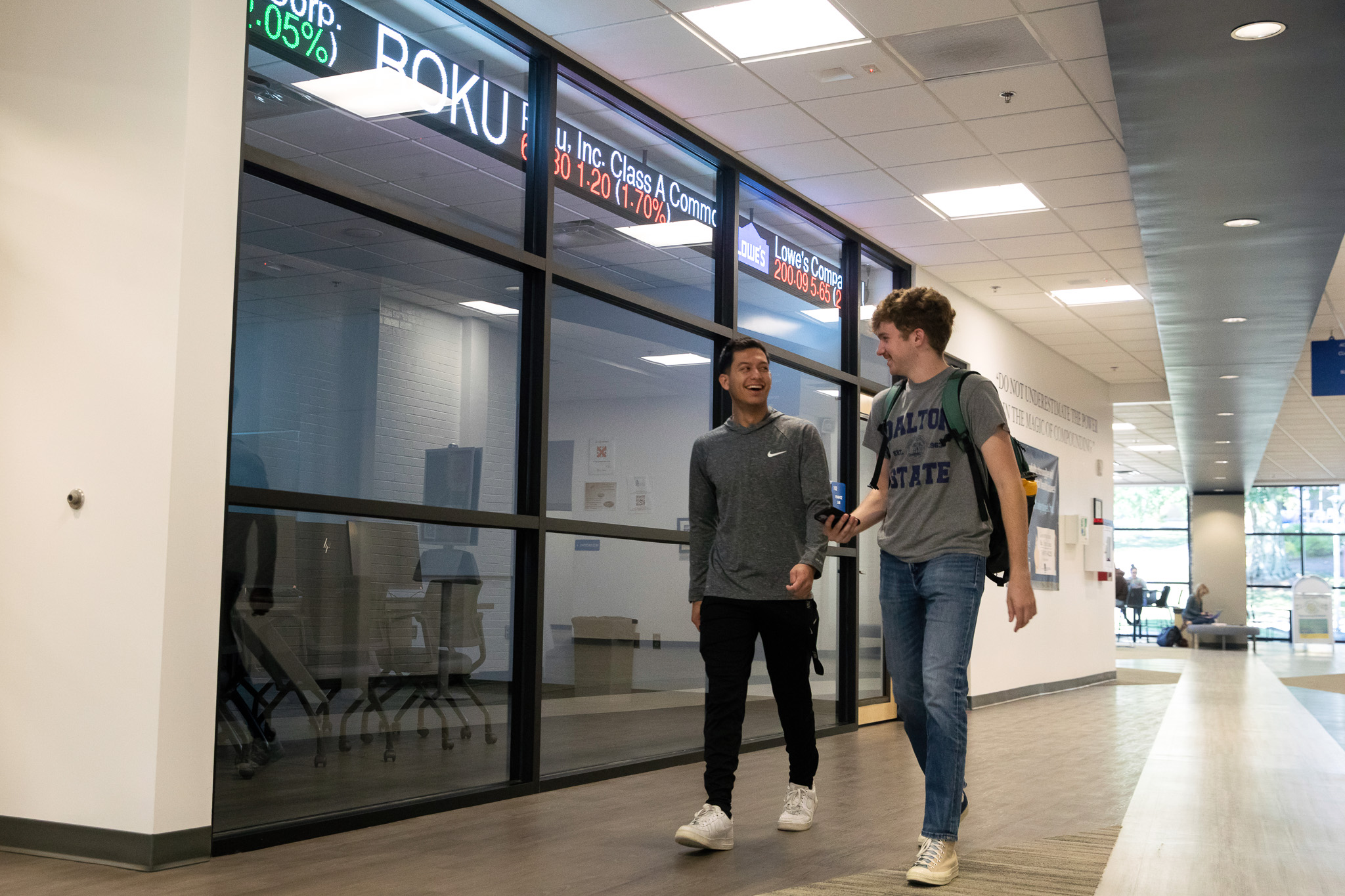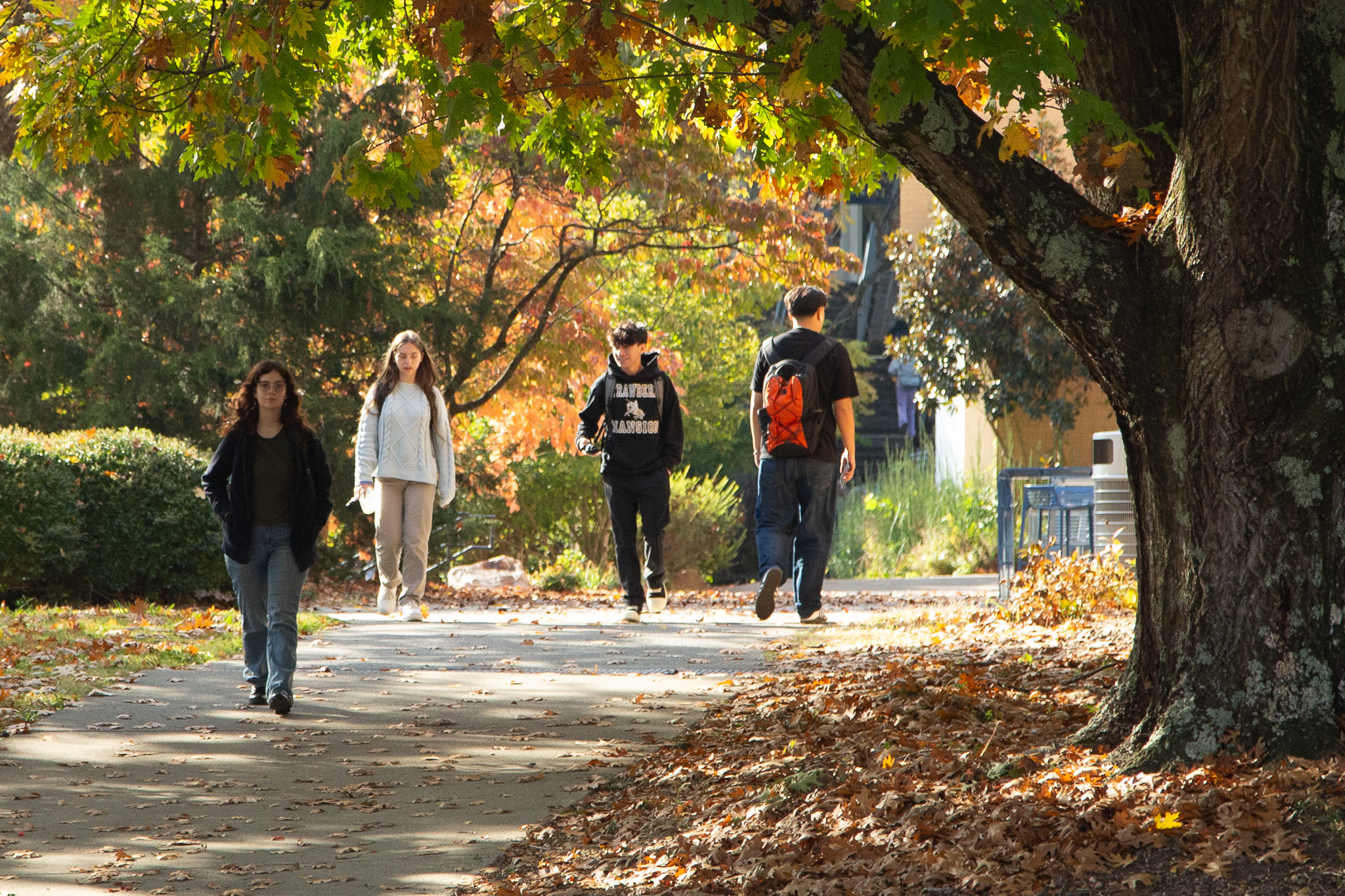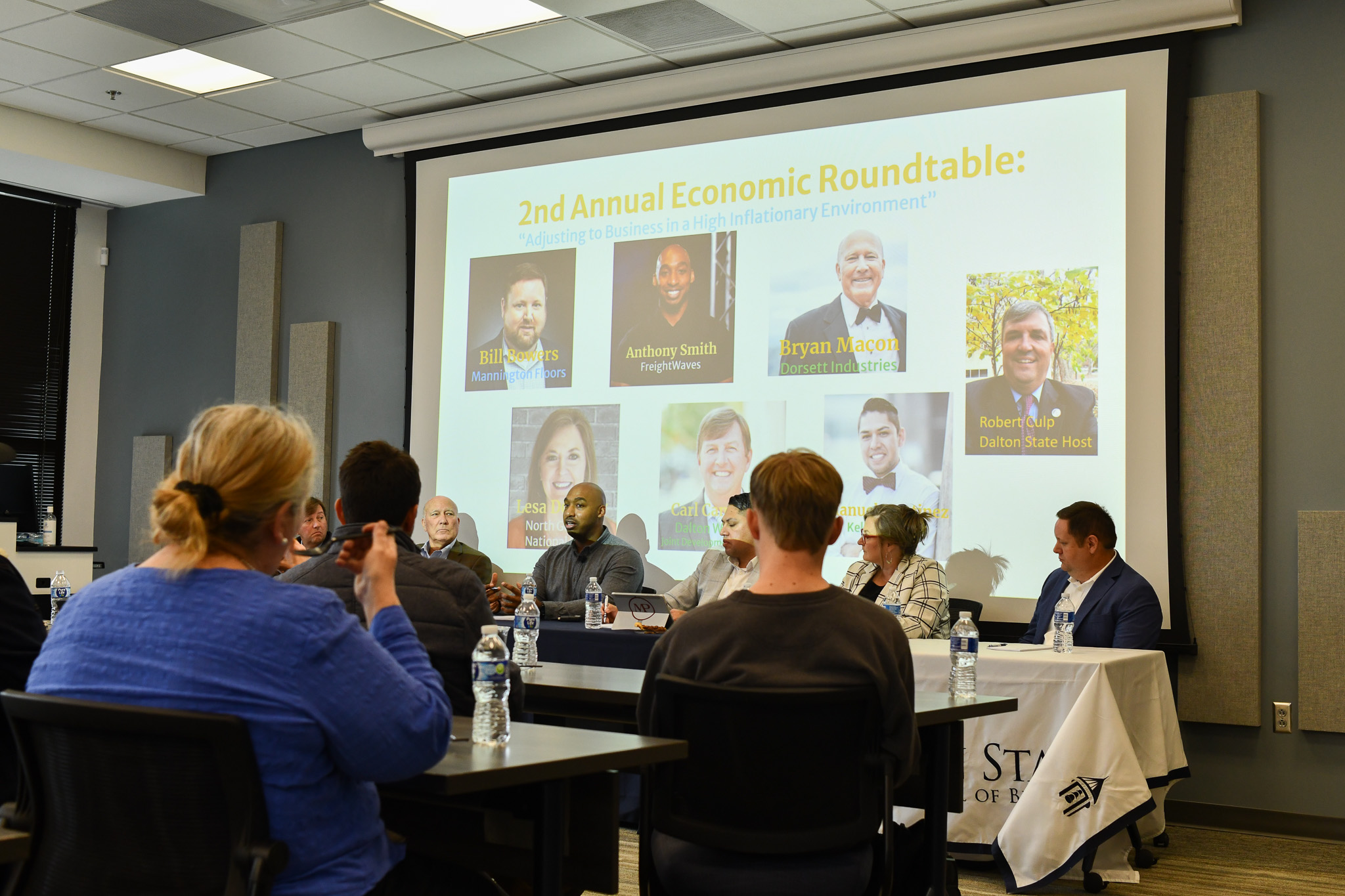STEM students at Dalton State will soon have more opportunities to participate in hands-on learning such as internships and undergraduate research thanks to a $4.2 million federal grant.
Dalton State was awarded the Title III STEM grant from the Department of Education due to its status as a Hispanic-Serving Institution (HSI), a federal designation given to colleges where at least 25% of the student population is Hispanic. Dalton State is currently at 34%.
“As Georgia’s first and only Hispanic-Serving Institution, we are in a unique position to bring together diverse ideas to improve our society and economy while also enriching human interaction and learning on campus,” said Dr. Margaret Venable, president of Dalton State. “We know different perspectives lead to more innovation and sustainable solutions for our most challenging problems. Everyone benefits when we can engage with each other. This grant will provide us with more resources that will directly impact our students.”
Resources and services will be expanded to help all students, especially those who are part of underserved populations, such as low-income students, Hispanic students and first-generation students.
“The grant allows us to implement a comprehensive plan designed to help students achieve their full potential,” said Dr. Jodi Johnson, vice president for Student Affairs and Enrollment Management. “The focus of our plan is on STEM education. We will be creating a centralized STEM internship program, a peer mentorship program and expanding research opportunities for our students in addition to increasing services for students facing hardships.”
The grant will fund a position for a STEM mentor and experiential learning coordinator, who will organize internship opportunities, as well as provide professional development and career coaching. A peer-to-peer mentorship program will also be created to provide students with additional support.
The grant will also fund a new position responsible for working directly with students in need to make sure they have access to the resources they need to succeed. That person will be responsible for connecting students with healthcare providers, state or federal benefits, food pantries, alternative housing, tutoring, counseling or disability access.
“Students cannot focus on classes if they are worried about where their next meal is coming from or healthcare,” Johnson said. “This position allows us to better connect our students with resources that could make the difference in finishing their degree.”
The grant creates a stipend for faculty who oversee undergraduate research projects and for the students conducting the research.
“A major focus of this grant is to help us increase research opportunities for our students,” said Dr. Randall Griffus, dean of the School of Arts and Sciences. “One barrier we see that prevents some students from participating in undergraduate research is finances. Many of our students must work. Receiving a stipend would give them that extra assistance so they don’t have to work or can work fewer hours.”
Additional laboratory equipment will be purchased, and next year the Turtle Assurance Colony (TAC) will receive a second greenhouse. The new greenhouse will be for endangered turtles who thrive in a temperate climate; the current greenhouse is for turtles that need a tropical climate.
“We want every student to have an opportunity to participate in an internship and/or a research project,” Griffus said. “Anytime students do so, it enhances their applications for jobs, graduate school or professional school. Furthermore, they have an opportunity to experience first-hand how classroom theory applies to the real world. They can see what industry jobs look like and how scientists conduct research. It’s a unique educational experience in addition to their time in the classroom. We also know these experiences increase the chance a student will finish their degree.”
Undergraduate research has led Dalton State students to land prestigious internships and jobs as scientists in the field, at zoos, aquariums and more.
The grant will also fund two faculty positions, one in biology and one in chemistry, as well as a dual enrollment coordinator.





